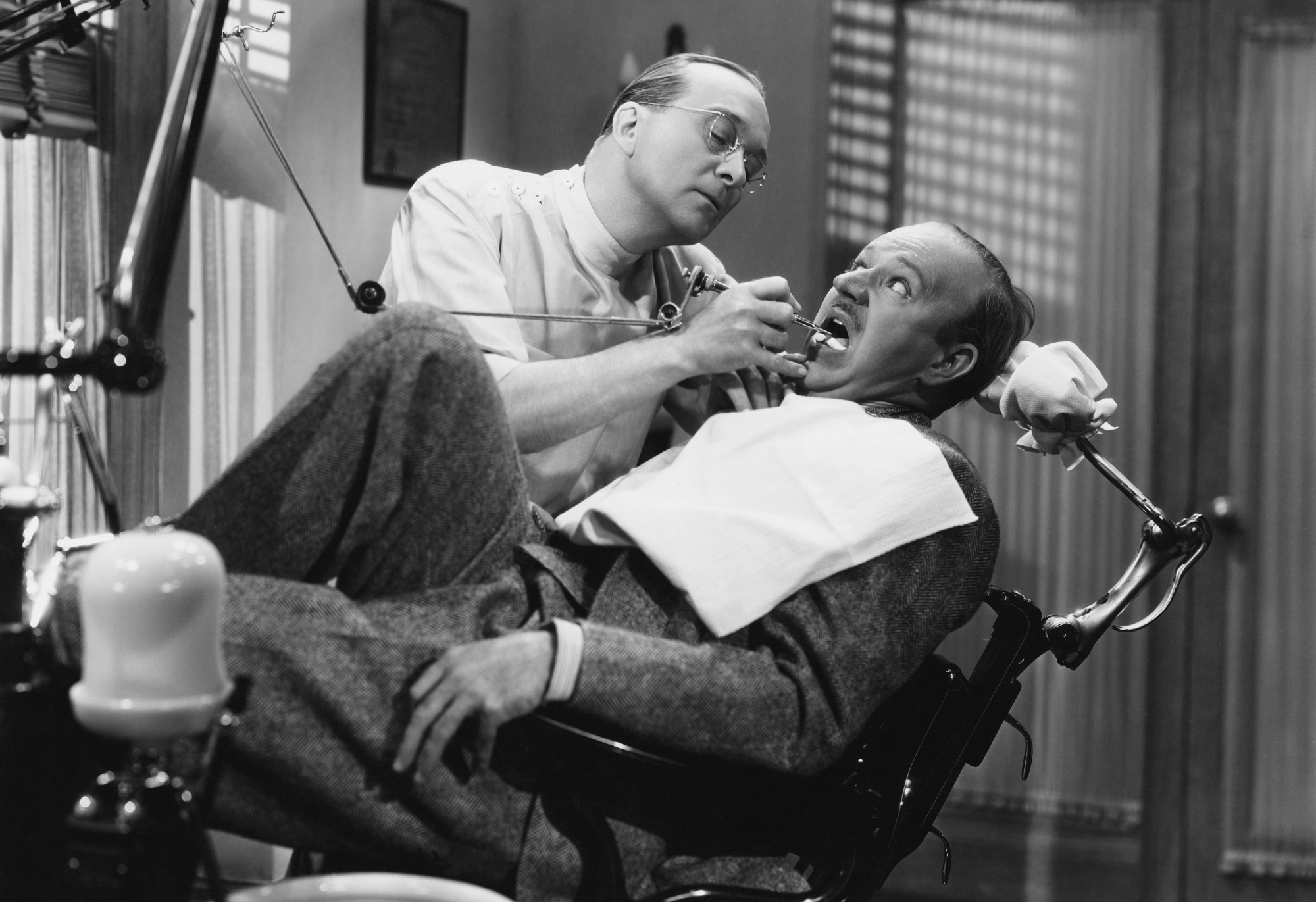Dental anxiety is a well-studied behavioral barrier to dental care, while the unpleasant stimuli-triggered overactive gag reflex is less studied but concerning. The gagging reflex can impair dental treatment and is associated with sexual penetration issues and a prior history of abuse in women. Self-assessment techniques such as the Gagging Problem Assessment Tool (GPAR) and Gagging Assessment Scale (GAS) assess gagging. Emetophobia, a specialized phobia of vomiting, is less explored but may be connected. Emetophobic individuals experience intense dread, panic symptoms, avoidance, safety measures, and a higher likelihood of depression, anxiety disorders, and eating disorders.
In the present cross-sectional study, researchers investigated the relationship between self-reported anxiety, excessive gagging, and emetophobia in the dental chair.
 Study: Excessive Gag Reflex, Dental Anxiety, and Phobia of Vomiting in Dental Care. Image Credit: Everett Collection / Shutterstock
Study: Excessive Gag Reflex, Dental Anxiety, and Phobia of Vomiting in Dental Care. Image Credit: Everett Collection / Shutterstock
Study Methodology: Survey Design and Participant Profile
The researchers conducted the online survey-based study between June 10 and August 10, 2021, using the Dental Anxiety Scale (DAS), GPAR, GAS, and Specific Phobia of Vomiting Inventory (SPOVI) self-report questionnaires. The researchers circulated the surveys on social media platforms. They included additional questions to define the gagging experienced by the participants.
A panel of subject matter experts (SMEs) agreed on these questions and assessed their content validity. The group included three dentists and one psychologist with extensive academic and clinical expertise working with individuals who excessively gag in the dental chair. Each expert suggested questions for the survey, and following discussions, the SMEs finalized the questions.
Survey Content: Questions and Measures
The questions included if the individual has excessive gagging, how severe the reflex is, and how it affects everyday living. They also inquired about their experiences with mouth breathing, tonsillectomy, and other household members gagging. They also included queries related to unpleasant recollections of vomiting, experiences with nausea in non-dental treatment scenarios, and the level of gagging in specific situations such as eating certain meals, having dental x-rays, and smelling dental office odors. They translated the questionnaires into Hebrew and back-translated them into English, followed by re-translation into Hebrew to ensure maximal clarity.
The researchers performed multivariate logistic regression modeling for analysis, including variables such as age, sex, DAS scores, SPOVI scores, and questions related to the two gagging evaluation measures: The questions were related to gag reflex incidence and intensity, the extent of interference of gag reflexes with daily living, vomiting in dental offices, feeling nauseous in various situations, and gagging while consuming particular foods, undergoing dental radiography, smelling odors in dental offices, and other odors.
Results: Correlations and Key Findings
In total, 186 individuals answered the questionnaire, with 164 (88%) completing it (88% female; average age 34 years). The team observed positive correlations between all variables. The severity of the gag reflex, dental anxiety, and vomiting phobia all predicted gagging scores. High gagging increased the incidence of positive emetophobia (SPOVI scores ≥10) by 7.3 times for GAS below 6.0 and 5.8 times for GAS ≤7.0. GPA-R did not raise the probability of positive emetophobia.
Nearly 33% of the individuals reported that their gagging reflex considerably interfered with routine activities; 6% had undergone a tonsillectomy, and 24% documented mouth breathing. 58% of individuals reported having unfavorable recollections related to choking or vomiting, whereas 7% remembered vomiting in dental offices. Among the participants, 13% said that odors in dental offices frequently cause gagging, while 20% reported that smells unrelated to dental treatment might induce a similar response.
Furthermore, 20% to 30% of individuals reported different types of avoidance (e.g., eating particular foods, traveling long distances, consuming alcohol, receiving dental care). 27% of individuals experienced gagging, and 13% reported significant gagging by other household members. The mean Dental Anxiety Scale score was 11.4, and 39% (64 individuals) of participants reported high anxiety (DAS ≥13).
The mean Gagging Assessment Scale score among the participants was 6.6. Among the participants, 35% (53 individuals) had significant gagging (GAS >6.0), while 28% (46 individuals) experienced significant gagging when the GAS cutoff was 7.0. The mean GPA-R score was 1.75. Among the participants, 56% reported no or mild gagging (91 individuals), 41% reported moderate gagging (66 individuals), and three percent experienced severe gagging (five individuals). The mean SPOVI score was 22, and 62% (102 individuals) were emetophobic (SPOVI ≥10).
Implications and Conclusions
Overall, the study findings showed that excessive gagging in the dental office is associated with dental anxiety and emetophobia. Over 50% of the study participants reported unpleasant memories related to vomiting or gagging, and 10% to 17% claimed smells could induce the syndrome. The findings indicated that smells in dental offices play a more robust role in dental anxiety and the gag reflex than previously estimated. Previous physical health concerns like respiratory distress, a history of vomiting among family members, and psychological discomfort may impact adults experiencing vomiting difficulties. Nearly 25% were mouth breathers, with a high percentage of individuals undergoing tonsillectomies. The study confirms prior reports stating that excess gagging in dental offices is closely related to dental anxiety.